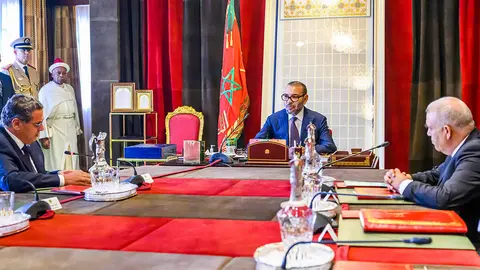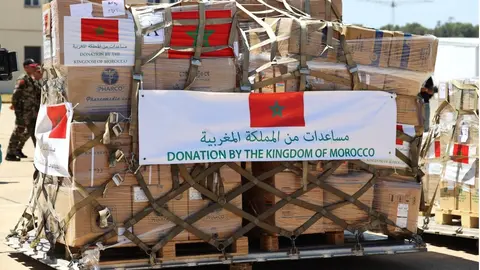Silent paramedic: Morocco moves to help Gaza quietly
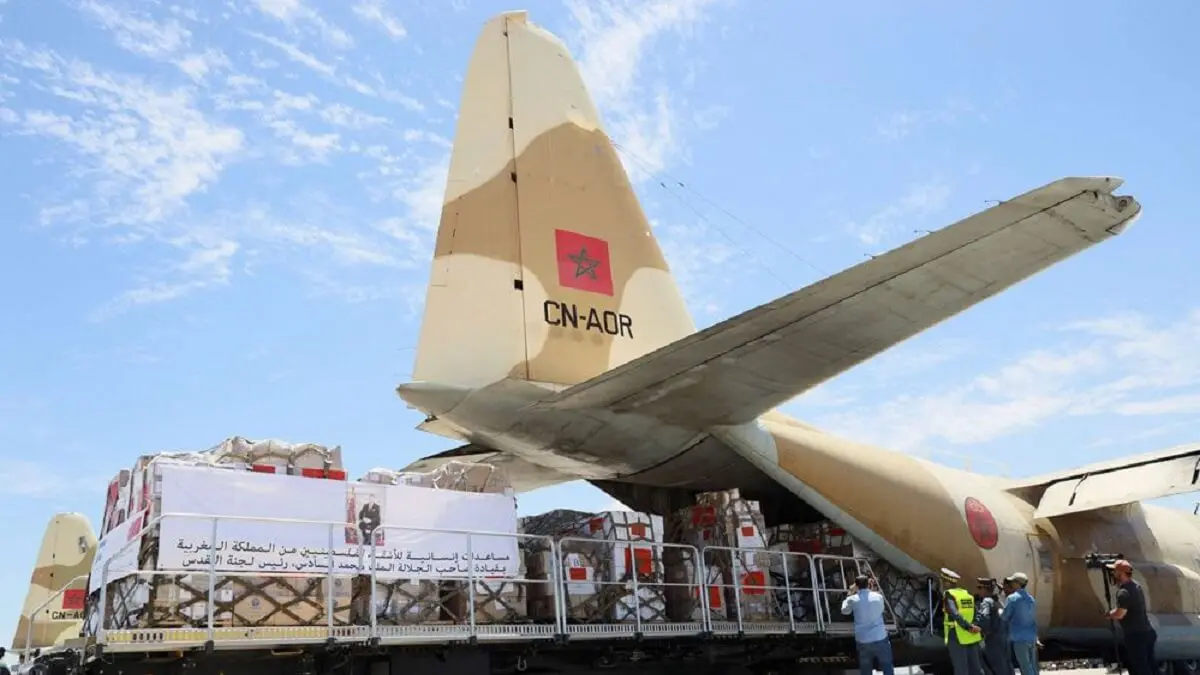
Morocco has avoided resorting to media hype to reveal the amount of its aid to the Palestinian people, and has taken a route known as the "silent paramedic" to alleviate the suffering caused by the war to residents in the Gaza Strip for some nine months.
Moroccan King Mohammed VI, chairman of the Al-Quds Committee, on Monday ordered the launch of a humanitarian operation to direct urgent aid to Gaza, including forty tonnes of medical supplies, including equipment to treat burns, surgical emergencies, orthopaedics and fractures, and essential medicines.
Morocco has, and continues to have, a historic responsibility to the Palestinian cause, and works in a calm manner that is consistent with its Arab and Islamic commitments, and achieves a practical benefit for citizens, the importance of which increases as the situation escalates due to the violent war that led to a humanitarian situation that is difficult to bear in Gaza.
Morocco always shows great care for the case of Jerusalem, within the framework of the Arab-Islamic consultation, and has an arm through which it works to provide assistance in a sustainable manner.
Morocco's political and humanitarian role is welcomed by different Palestinian forces and factions; its aim is to help citizens, choose direct ways that serve their cause, alleviate people's suffering over many years and avoid entering into polemics with parties that have tried to use the war to their advantage and exploit the tragic results.
Moroccan political analyst Abdel Fattah Fatehi said that his country has always paid great attention to the case of Jerusalem, within the framework of the Arab-Islamic relationship, and has an arm through which it works to provide aid in a sustainable manner, which is the Beit Mal Al-Quds agency, to which Morocco makes a significant and effective financial contribution.
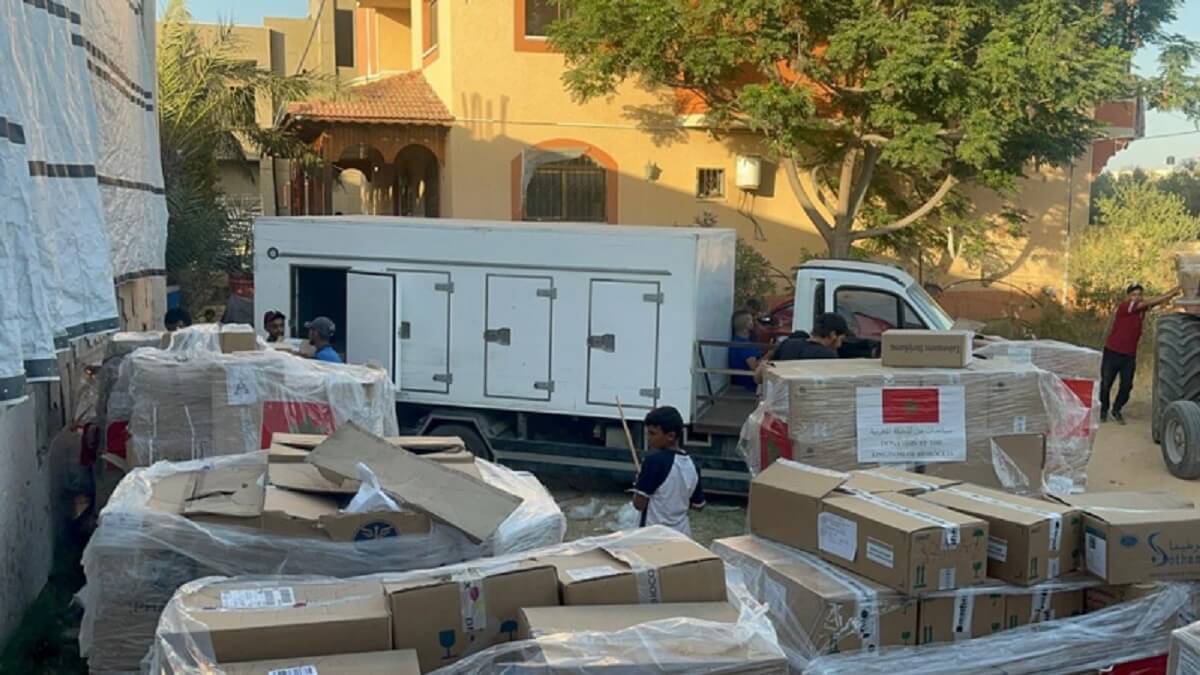
In a statement to the daily Al Arab, Fattah Fatehj asserted that there are civilised, cultural and historical considerations in Morocco's relationship with the Palestinian cause, which compelled it to move through many avenues to support the Palestinian people, including the diplomatic effort it places at the top of its interests.
He noted that Morocco has been unfairly exposed to attempts to undermine its right to maximise its political and humanitarian role towards the Palestinian people, in the context of a geostrategic competition in the region, but the sustainability of aid and political efforts in pursuit of peace revealed the importance of its vital role.
Morocco has taken an innovative path to deliver in-kind aid to its beneficiaries, using a land route to send food over the past Ramadan, confirming the royal commitment and ongoing attention that King Mohammed VI attributes to the Palestinian cause.
Morocco was the first to open a road unprecedented since the outbreak of the war in Gaza, where aid is delivered to Tel Aviv by air, from where it is sent to Gaza via the land route.
Professor of Political Science at Al-Quds University, Ayman Al-Naqab, assured Al-Arab that the aid efforts provided by the Kingdom of Morocco are appreciated by the people, and that there is an awareness on the part of the citizens and the Palestinian Authority about the nature of the humanitarian and political assistance and efforts provided by the Kingdom, and that the Gaza war is a testament to the efforts that Morocco has made through air distribution operations and the provision of aid by land routes, and that this is not the first time that direct orders were issued by King Mohammed VI, but was preceded by multiple actions.
He added that Morocco is one of the first Arab countries to provide aid without having an interest in political gain behind supporting the Palestinian cause, which points to the magnitude of the crisis and the need to deal with practical mechanisms while blocking Israel's aid entry points, which led to moving in different directions to quickly reach hundreds of thousands of besieged people inside the Gaza Strip.
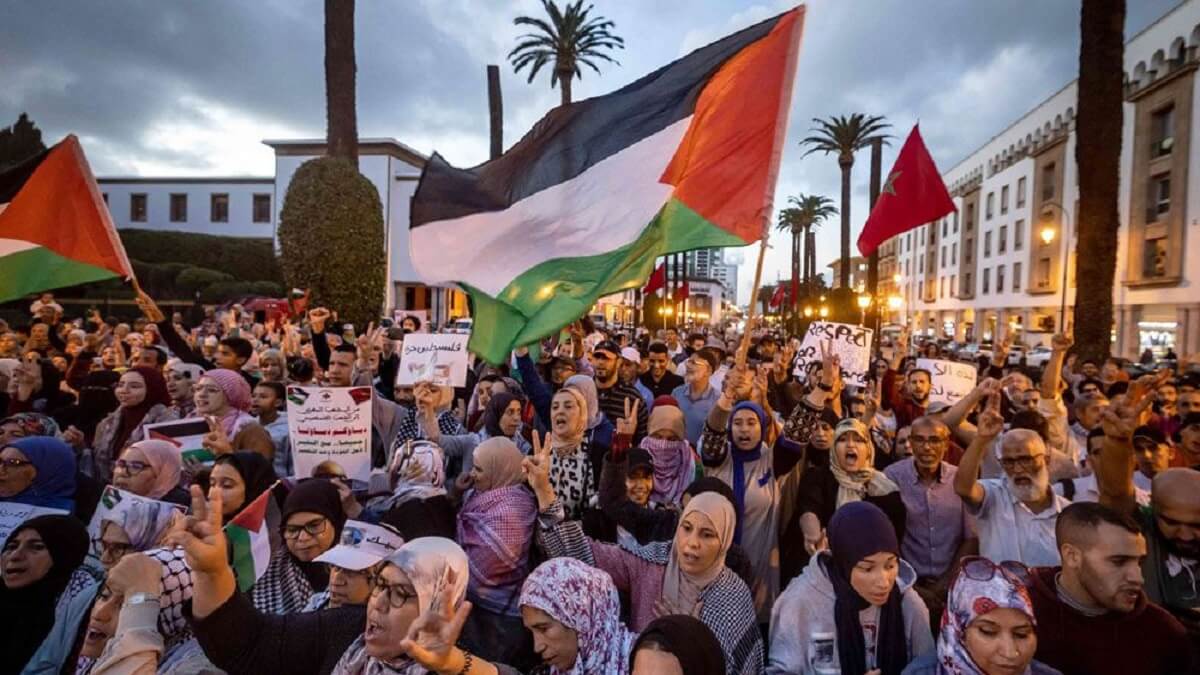
Al-Naqab stressed that all countries that have peace agreements with Israel, including Morocco, can reach political solutions that contribute to a ceasefire, and do not require the Palestinians to cut diplomatic relations, but to employ them in the pursuit of peace and comply with international treaties and covenants related to the political solution of the Palestinian case. Morocco can play a role in lobbying Israel to help provide a vision that will result in a political project that opens up prospects for a cessation of fighting in Gaza.
Moroccan medical assistance is part of a long tradition of effective solidarity with the Palestinian cause and continued royal care for the Palestinian people, which is in addition to the Jerusalem Capital Agency's ongoing initiatives to provide assistance to Jerusalem residents.
The Moroccan monarch's humanitarian initiatives reflected his wise vision to provide effective and concrete support to the Palestinian people and demonstrated that the Al-Quds Committee over which he presides has clear fingerprints.
The leader of the Fatah Jihad Al-Harazin movement acknowledged that the Palestinian people appreciate the aid reaching them from Arab countries in general, with awareness of the nature of the obstacles set up by Israel, and said: "The Moroccan presence at the level of providing tens of tons of medical aid proves that the Kingdom has the capacity to deliver it in fact, and overcome the restrictions imposed by the war, which contributes to saving what can be saved, with thousands of trucks piling up on the Egyptian border with Gaza and the occupation forces worried about delivering them."
In a statement to Al-Arab, he noted that the Moroccan monarch, being the chairman of the Al-Quds Committee, was in a position to push for new ways of delivering aid, which has already happened in recent months and has made the role of the Alawite monarch a tangible fact of support for the Palestinian cause and integrated work with other Arab roles.
Jihad Al-Harazin stated that Morocco is providing its aid without the need for a race with anyone, political noise or "media spectacle", and does not stop providing aid and if it wanted to get a media photo-op it would have been satisfied with previous aid. This attitude created a broad Palestinian welcome to all Morocco's silent efforts because the aim is to achieve a state of security and stability in the region and to create the right atmosphere for its economic development.

